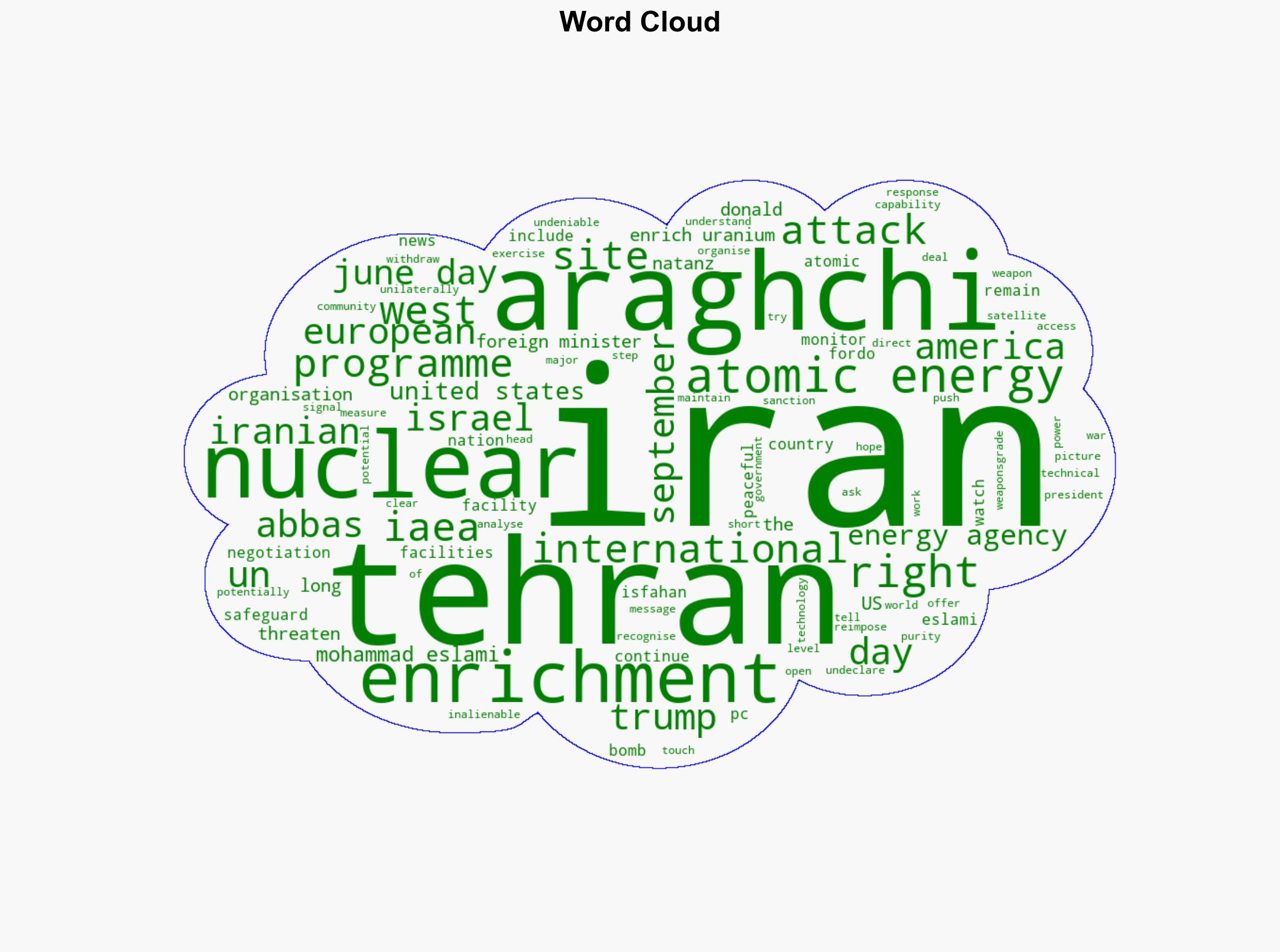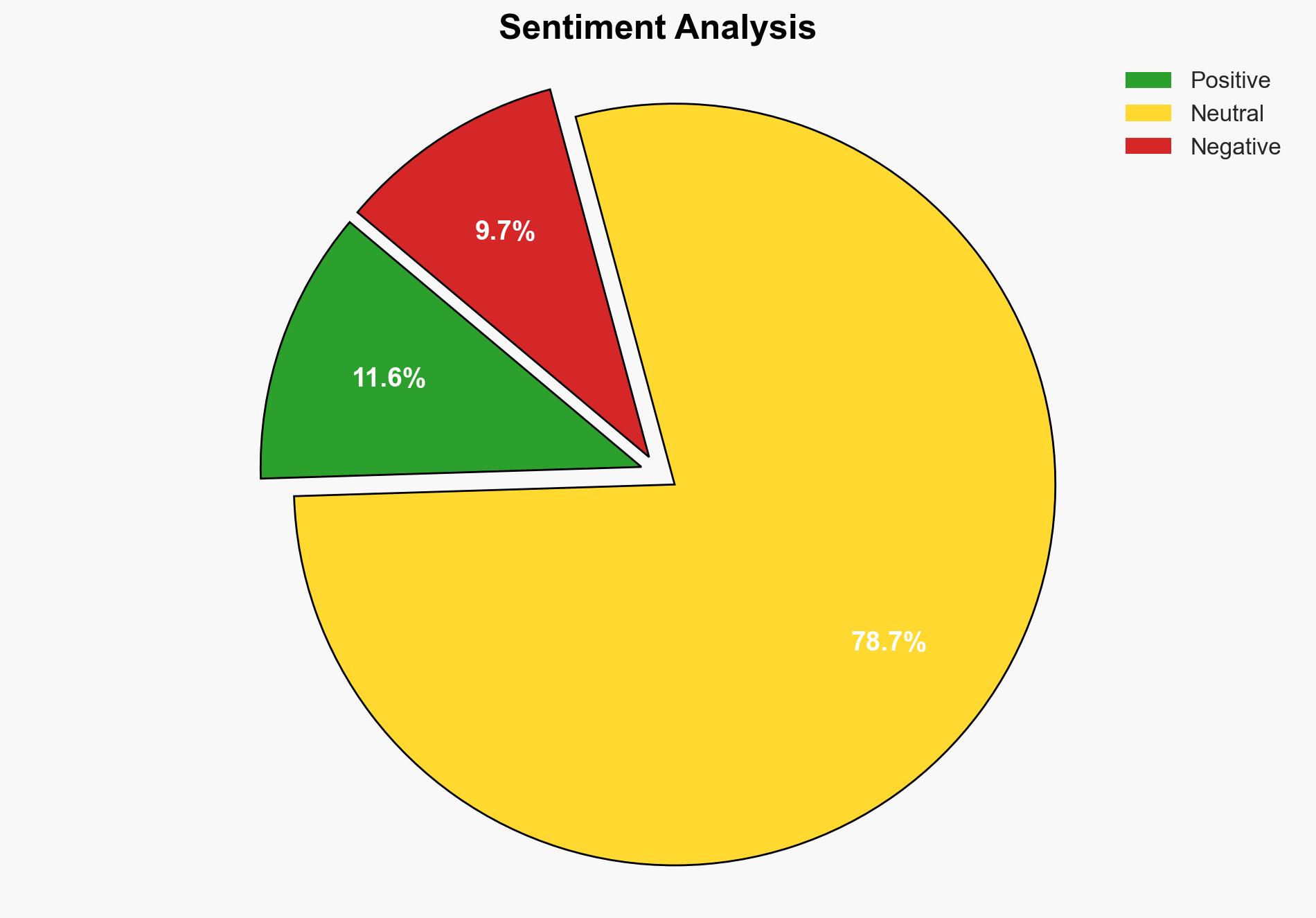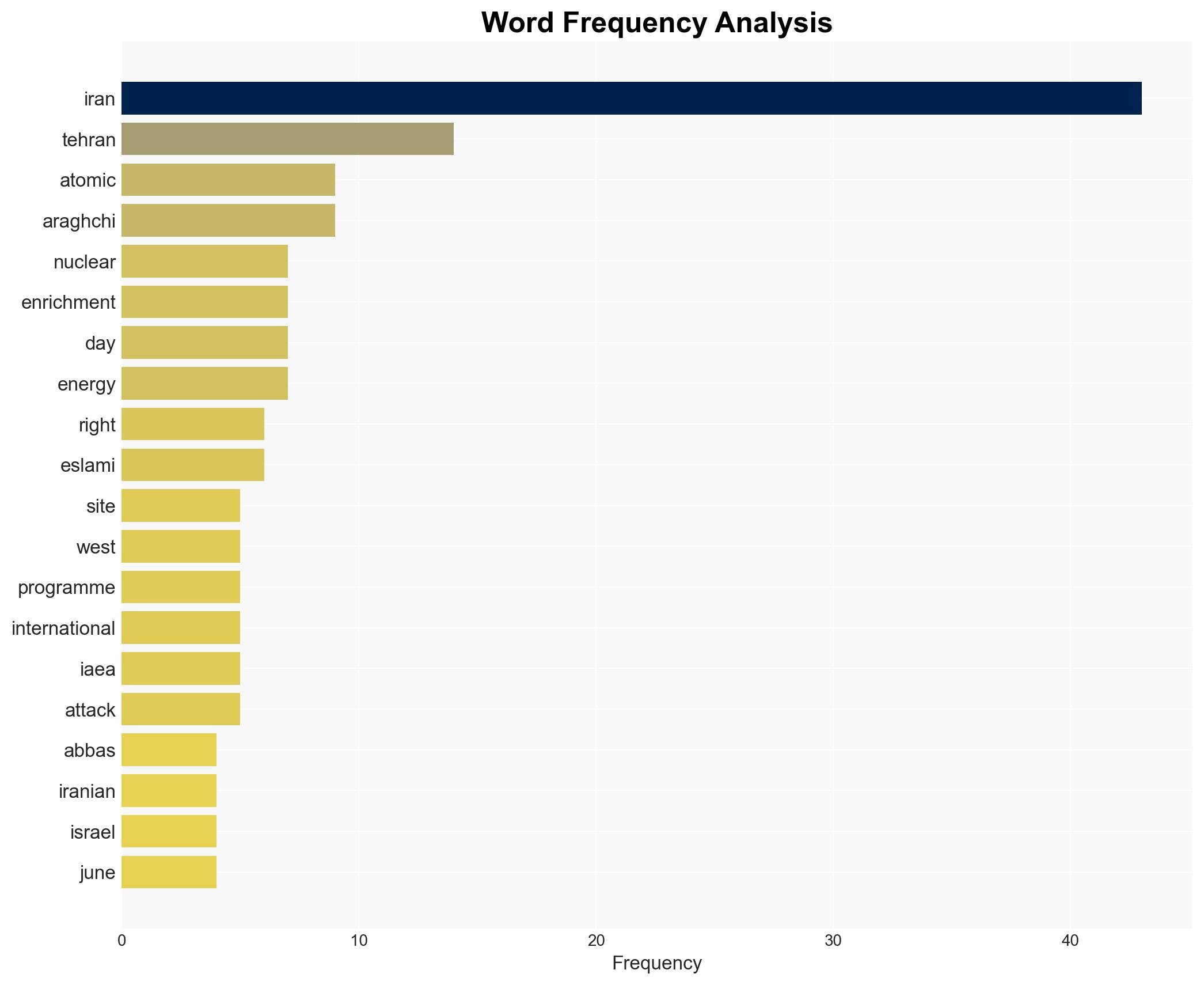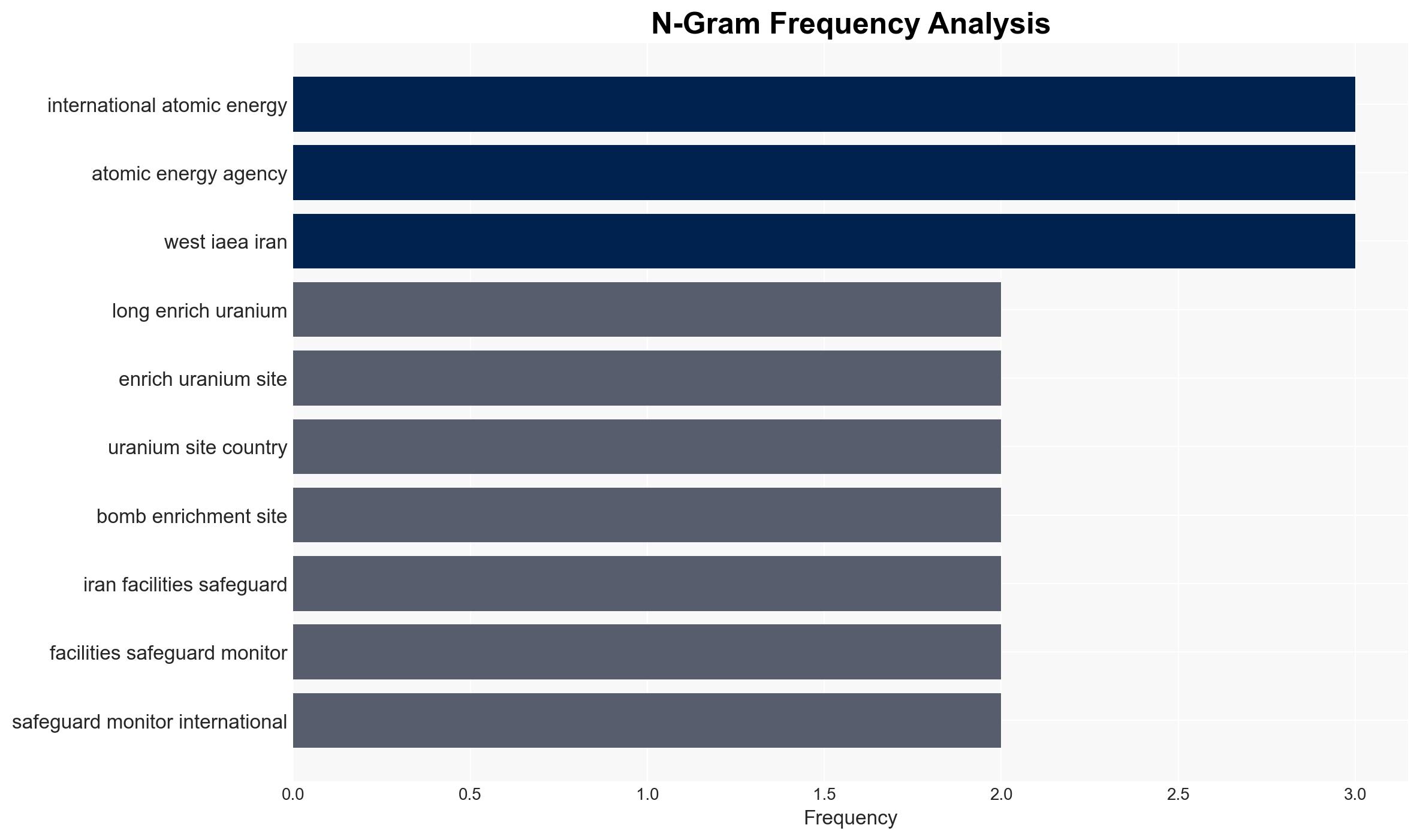Iran’s foreign minister says the nation is no longer enriching uranium at any site in the country – Independent.ie
Published on: 2025-11-17
AI-powered OSINT brief from verified open sources. Automated NLP signal extraction with human verification. See our Methodology and Why WorldWideWatchers.
Intelligence Report: Iran’s Uranium Enrichment Status
1. BLUF (Bottom Line Up Front)
There is moderate confidence that Iran’s statement about ceasing uranium enrichment is a strategic move aimed at reopening negotiations with Western powers. However, the possibility of deception remains, given Iran’s historical opacity regarding its nuclear activities. It is recommended that the international community, particularly the IAEA, increase monitoring and verification efforts to ensure compliance and maintain regional stability.
2. Competing Hypotheses
Hypothesis 1: Iran has genuinely ceased uranium enrichment activities as a gesture to facilitate diplomatic negotiations with Western countries.
Hypothesis 2: Iran’s statement is a strategic deception intended to reduce international pressure while continuing enrichment activities covertly.
Assessment: Hypothesis 1 is supported by Iran’s expressed interest in negotiations and the potential benefits of sanctions relief. However, Hypothesis 2 cannot be dismissed due to Iran’s past behavior of obfuscation and the strategic advantage of maintaining a latent nuclear capability.
3. Key Assumptions and Red Flags
Assumptions: Iran is rationally motivated by economic pressures and international isolation to seek negotiation. The IAEA has the capability to effectively monitor Iran’s nuclear activities.
Red Flags: Lack of transparency in Iran’s nuclear sites, historical precedent of non-compliance, and recent threats of military action against Iranian facilities by Israel.
Deception Indicators: Ambiguities in Iran’s public statements and potential discrepancies in satellite imagery and IAEA reports.
4. Implications and Strategic Risks
The cessation of enrichment, if genuine, could lead to a de-escalation of tensions and a revival of the Joint Comprehensive Plan of Action (JCPOA). However, if Iran is deceiving the international community, it risks triggering a regional arms race or preemptive strikes by Israel, escalating into broader conflict. Cyber operations and economic sanctions could also intensify, impacting global markets and regional stability.
5. Recommendations and Outlook
- Enhance IAEA monitoring and verification mechanisms in Iran, focusing on known and suspected sites.
- Engage in multilateral diplomatic efforts to bring Iran back to the negotiating table under clear terms.
- Prepare contingency plans for potential military or cyber responses by regional actors.
- Best-case scenario: Iran complies with international norms, leading to sanctions relief and regional stability.
- Worst-case scenario: Covert enrichment continues, leading to military conflict and regional destabilization.
- Most-likely scenario: Prolonged diplomatic stalemate with intermittent escalations and negotiations.
6. Key Individuals and Entities
Abbas Araghchi, Mohammad Eslami, International Atomic Energy Agency (IAEA), Israel, United States.
7. Thematic Tags
Regional Focus, Middle East, Nuclear Non-Proliferation, International Diplomacy, Regional Security
Structured Analytic Techniques Applied
- Causal Layered Analysis (CLA): Analyze events across surface happenings, systems, worldviews, and myths.
- Cross-Impact Simulation: Model ripple effects across neighboring states, conflicts, or economic dependencies.
- Scenario Generation: Explore divergent futures under varying assumptions to identify plausible paths.
Explore more:
Regional Focus Briefs ·
Daily Summary ·
Support us
·





